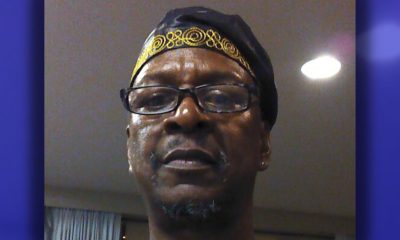#NNPA BlackPress
During Building Boom, Chair of Housing Advisory Commission Urges Equal Opportunity for Contractors
NNPA NEWSWIRE — Workers of color “often don’t get rained up to be superintendent or foreman, they get dedicated to labor on-site,” Nate McCoy, chair of the Portland Housing Advisory Commission, said. “Construction has not done its best job in marketing itself as a career pathway for all communities. We’ve coined it ‘the FBI,’ because the way to get into construction is through your father or brother-in-law. Most of our businesses on the minority- or majority-owned side have been family-owned businesses. But I’m looking at affordable housing, knowing a lot of minorities live in it. They should see folks who look like them building the projects.”
Nate McCoy wants the city of Portland to be more inclusive of minority-owned firms.
By Saundra Sorenson, The Skanner News
When the Portland City Council voted to re-appoint Nate McCoy as chair of the Portland Housing Advisory Commission earlier this month, it was largely in recognition of his focus on equity in access to affordable housing. But the additional two-year term also draws on McCoy’s specific area of expertise: equity in who is paid to build that affordable housing stock.
McCoy serves as executive director, operations manager and spokesperson for the Oregon chapter of the National Association of Minority Contractors (NAMC-OR), a trade association that advocates for minority contracting professionals. He told The Skanner that it can be hard for smaller, minority-owned firms to compete with larger, more established contractors, even at a time when commercial and residential development is booming. While many recognizable names in construction can boast more than a century in business, the NAMC-OR member with the greatest longevity is only 20 years old. “Mid-point” contracts, like those offered on affordable housing projects, have proved ideal for NAMC-OR members.
“I think just making sure that I’m always holding all of our programs and processes accountable, to make sure there’s always that equity, on how we’re thinking and making decisions, and I’m always that constant reminder at the Housing Bureau,” McCoy said.
The 12-member advisory commission is a public forum for housing policy in Portland, and includes community organizers, representatives from the real estate, legal, construction and banking sectors, as well as many who have worked in affordable housing. McCoy’s education in that field came early.
“I moved in seventh grade alone to three different apartment buildings, all due to price increase in rent,” McCoy, a Portland native, said. “That’s why I have a passion for housing, but also the business and workforce side. If you don’t have a good-paying job, you’re forced to be in those conditions where you can be displaced at any moment.”
A former construction coordinator for the housing bureau and for the Portland Development Commission, McCoy said he had long noticed the economic opportunities in an industry that too often operated as a “good ole boys club.”
Workers of color “often don’t get rained up to be superintendent or foreman, they get dedicated to labor on-site,” McCoy said. “Construction has not done its best job in marketing itself as a career pathway for all communities. We’ve coined it ‘the FBI,’ because the way to get into construction is through your father or brother-in-law. Most of our businesses on the minority- or majority-owned side have been family-owned businesses. But I’m looking at affordable housing, knowing a lot of minorities live in it. They should see folks who look like them building the projects.”
To that end, McCoy praised local pre-apprenticeship programs like Oregon Tradeswomen Inc. and Portland Opportunities Industrialization Center (POIC).
“They do great grasswork work of outreach in schools,” McCoy said. “Too often, it’s been the classic case of older white men telling students of color about the industry. The students have no representation. And no one wants to be in something where they feel they might be the only one. We’ve got to reflect diversity, and that means sending messengers that might look like some of the kids you’re trying to attract to the industry. We do a lot of that. I take a lot of kids to different housing projects as well as other just projects that our members are on, to make sure these kids can see professionals. Not just athletes, but professionals” in attainable careers.
Those careers offer the kind of upward mobility and salary that can lead to homeownership, which then opens up additional affordable units, McCoy added.
Getting Opportunities but Not Work
New NAMC-OR member Devin Coleman owns Aftermath Construction, a commercial and residential construction cleanup business that he established after years working as a safety manager and safety consultant for construction projects.
Coleman, who is African American, told The Skanner of his experience losing business with a large Boise-based contractor that had hired his firm in the past. Nothing had changed except for an in-person courtesy call between Coleman and the contractor’s higher-ups.
“Everything just stopped,” Coleman said. “We lost all of our business, just because they met me. And I’ve had that happen several times. When people talk to me on the phone, they hear a British first name, Irish last name, and then when we meet, they do a double-take.”
Coleman emphasized the value of employing a diverse work crew. For him, that includes the White project manager he often asks to take the lead on communication with clients.
“It’s not that everybody’s racist, but the powers that be, they’re very selective,” Coleman said. “They can give you opportunities, they can ask you for bids, but they don’t give you work. It’s in the rhetoric you hear: ‘It’s just not a good fit,’ or ‘They’re just not seasoned enough.’”
Beyond the Buzzwords
Much of McCoy’s work has focused on building strategic partnerships with larger construction firms.
“The first thing is having a shared value around what diversity, equity, and inclusion really means, not just as buzzwords,” McCoy told The Skanner. “People love to put those buzzwords on proposals, and I think it really starts with intentionality around the relationship, around retention. Are you really advancing these people or just bringing them in, and they find themselves struggling and isolated and taking themselves out of that equation?
“What we try to do at NMAC, we bring all of our members and partners together, build a relationship, and make sure no one feels uncomfortable about asking those questions: ‘How do you guys do equity and inclusiveness on your side?’ A lot of it is just being real with people.”
And that is important, because for McCoy, collaborations between NAMC-OR members and larger partner agencies are key.
“The way you cut into that is to see if people have shared values of partnering together,” he said, giving as an example the “added value” when smaller minority firms partnered with Andersen Construction in the recent Grant High School renovation. “That allows smaller firms to build their systems quicker, to train their younger junior employees and their project managers. We stress that to our (partners), we incentivize them to do that on major projects, because they’re growing other entities that will be viable in the minority contracting community.”
He argues it is in the construction industry’s best interest to be more inclusive.
“The construction industry here is booming, the amount of people they’re able to attract in is not even starting to scratch the surface of the need,” McCoy said. “And when you’re more inclusive and diverse, your bottom line increases versus decreases. (The larger contractors) don’t want to feel like they’re bringing someone along to diminish their profits. We’ve been able to show that in multicultural partnerships, that does occur in a positive way.”
Strength in Partnerships
For a case study in diverse collaboration leading to a successful affordable housing development, McCoy points to the Magnolia in the Eliot neighborhood. McCoy served as construction manager on the project, which was helmed by Innovative Housing, Inc.
“A White-led nonprofit does affordable housing, they do it well, and they do have a lot of minority goals they put and apply on their projects,” McCoy said. “I just remember really trying to incentivize this nonprofit to go high and go bold with minority inclusion. We hit a 30% goal.
They’ve gotten more projects as a result of hiring more inclusive contractors and making sure they’re challenging their projects to go further and go bigger when it comes to diversity.”
Phase two of the development is currently under construction, and amenities include a ground-floor makerspace that will be open to organizations like Oregon Tradeswomen, Inc., as well as tenants themselves.
“That’s the North star for me,” he said. “Going back, I was one of those young people in affordable housing 8 project, I had nothing like that. I couldn’t walk down to that unit to my ground floor to do something crafty with my hands. I can’t name another project in the state that has that.”
He also praised the King + Parks development at the corner of Northeast Martin Luther King Jr. Boulevard and Rosa Parks Way.
“Talk about inclusiveness. Here you have (Portland Community Reinvestment initiatives Inc.), a culturally specific housing provider, led by black and brown people as developers, and then they partnered with a major developer (Colas Construction). It was led and finished with a lot of minority inclusion.”
#NNPA BlackPress
Beloved Actor and Activist Louis Cameron Gossett Jr. Dies at 87
NNPA NEWSWIRE — Louis Gossett Jr., the groundbreaking actor whose career spanned over five decades and who became the first Black actor to win an Academy Award as Best Supporting Actor for his memorable role in “An Officer and a Gentleman,” has died. Gossett, who was born on May 27, 1936, in Brooklyn, N.Y., was 87. Recognized early on for his resilience and nearly unmatched determination, Gossett arrived in Los Angeles in 1967 after a stint on Broadway.
The post Beloved Actor and Activist Louis Cameron Gossett Jr. Dies at 87 first appeared on BlackPressUSA.

By Stacy M. Brown
NNPA Newswire Senior National Correspondent
@StacyBrownMedia
Louis Gossett Jr., the groundbreaking actor whose career spanned over five decades and who became the first Black actor to win an Academy Award as Best Supporting Actor for his memorable role in “An Officer and a Gentleman,” has died. Gossett, who was born on May 27, 1936, in Brooklyn, N.Y., was 87. Recognized early on for his resilience and nearly unmatched determination, Gossett arrived in Los Angeles in 1967 after a stint on Broadway.
He sometimes spoke of being pulled over by law enforcement en route to Beverly Hills, once being handcuffed to a tree, which he remembered as a jarring introduction to the racial tensions of Hollywood. In his memoir “An Actor and a Gentleman,” Gossett recounted the ordeal, noting the challenges faced by Black artists in the industry. Despite the hurdles, Gossett’s talent shone brightly, earning him acclaim in groundbreaking productions such as “A Raisin in the Sun” alongside Sidney Poitier. His Emmy-winning portrayal of Fiddler in “Roots” solidified his status as a trailblazer, navigating a landscape fraught with racial prejudice.
According to the HistoryMakers, which interviewed him in 2005, Gossett’s journey into the limelight began during his formative years at PS 135 and Mark Twain Junior High School, where he demonstrated early leadership as the student body president. His passion for the arts blossomed when he starred in a “You Can’t Take It With You” production at Abraham Lincoln High School, catching the attention of talent scouts who propelled him onto Broadway’s stage in “Take A Giant Step.” His stellar performance earned him the prestigious Donaldson Award for Best Newcomer to Theatre in 1952. Though initially drawn to sports, Gossett’s towering 6’4” frame and athletic prowess led him to receive a basketball scholarship at New York University. Despite being drafted by the New York Knicks in 1958, Gossett pursued his love for acting, honing his craft at The Actors Studio under the tutelage of luminaries like John Sticks and Peggy Fury.
In 1961, Gossett’s talent caught the eye of Broadway directors, leading to roles in acclaimed productions such as “Raisin in the Sun” and “The Blacks,” alongside legends like James Earl Jones, Cicely Tyson, Roscoe Lee Brown, and Maya Angelou. Transitioning seamlessly to television, Gossett graced small screens with appearances in notable shows like “The Bush Baby” and “Companions in Nightmare.” Gossett’s silver screen breakthrough came with his role in “The Landlord,” paving the way for a prolific filmography that spanned over 50 movies and hundreds of television shows. From “Skin Game” to “Lackawanna Blues,” Gossett captivated audiences with his commanding presence and versatile performances.
However, his portrayal of “Fiddler” in Alex Haley’s groundbreaking miniseries “Roots” earned Gossett critical acclaim, including an Emmy Award. The HistoryMakers noted that his golden touch extended to the big screen, where his role as Sergeant Emil Foley in “An Officer and a Gentleman” earned him an Academy Award for Best Supporting Actor, making him a trailblazer in Hollywood history.
Beyond the glitz and glamour of Hollywood, Gossett was deeply committed to community activism. In 1964, he co-founded a theater group for troubled youth alongside James Earl Jones and Paul Sorvino, setting the stage for his lifelong dedication to mentoring and inspiring the next generation. Gossett’s tireless advocacy for racial equality culminated in the establishment of Eracism, a nonprofit organization dedicated to combating racism both domestically and abroad. Throughout his illustrious career, Gossett remained a beacon of strength and resilience, using his platform to uplift marginalized voices and champion social change. Gossett is survived by his children, Satie and Sharron.
The post Beloved Actor and Activist Louis Cameron Gossett Jr. Dies at 87 first appeared on BlackPressUSA.
#NNPA BlackPress
COMMENTARY: D.C. Crime Bill Fails to Address Root Causes of Violence and Incarceration
WASHINGTON INFORMER — The D.C. crime bill and so many others like it are reminiscent of the ‘94 crime bill, which produced new and harsher criminal sentences, helped deploy thousands of police and surveilling methods in Black and brown communities, and incentivized more states to build prisons through a massive infusion of federal funding. While it is not at the root of mass incarceration, it significantly accelerated it, forcing a generation of Black and brown families into a never-ending cycle of state-sanctioned violence and incarceration.
The post COMMENTARY: D.C. Crime Bill Fails to Address Root Causes of Violence and Incarceration first appeared on BlackPressUSA.

By Kaili Moss and Jillian Burford | Washington Informer
Mayor Bowser has signed the “Secure DC” omnibus bill passed by the D.C. Council last month. But we already know that this bill will be disastrous for all of D.C., especially for Black and brown residents.
While proponents claim that this legislation “will make D.C. residents safer and more secure,” it actually does nothing to address the root of the harm in the first place and instead maintains a cycle of violence, poverty, and broken community ties. The omnibus bill calls for increased surveillance, drug-free zones, and will expand pre-trial detention that will incarcerate people at a significantly higher rate and for an indeterminate amount of time before they are even tried. This bill will roll back decades of nationwide policy reform efforts and initiatives to keep our communities safe and whole, which is completely contradictory to what the “Secure” D.C. bill claims it will do.
What is unfolding in Washington, D.C., is part of a dangerous national trend. We have seen a resurrection of bad crime bills in several jurisdictions across the country — a phenomenon policy experts have named “zombie laws,” which are ineffective, costly, dangerous for communities of color and, most importantly, will not create public safety. Throwing more money into policing while failing to fund preventative measures does not keep us safe.
The D.C. crime bill and so many others like it are reminiscent of the ‘94 crime bill, which produced new and harsher criminal sentences, helped deploy thousands of police and surveilling methods in Black and brown communities, and incentivized more states to build prisons through a massive infusion of federal funding. While it is not at the root of mass incarceration, it significantly accelerated it, forcing a generation of Black and brown families into a never-ending cycle of state-sanctioned violence and incarceration. Thirty years later, despite spending billions each year to enforce these policies with many of these provisions remaining in effect, it has done very little to create long-term preventative solutions. Instead, it placed a permanent moving target on the backs of Black people, and the D.C. crime bill will do the same.
The bill calls for more pretrial detention. When our loved ones are held on pretrial detention, they are held on the presumption of guilt for an indeterminate amount of time before ever seeing a judge, which can destabilize people and their families. According to experts at the Malcolm Weimer Center for Social Policy at Harvard University, just one day in jail can have “devastating consequences.” On any given day, approximately 750,000 people are held in jails across the nation — a number that beats our nation’s capital population by about 100,000. Once detained, people run the risk of losing wages, jobs, housing, mental and health treatments, and time with their families. Studies show that pretrial detention of even a couple of days makes it more likely for that person to be rearrested.
The bill also endangers people by continuing a misguided and dangerous War on Drugs, which will not get drugs off the street, nor will it deter drug use and subsequent substance use disorders (SUDs). Drug policies are a matter of public health and should be treated as such. Many states such as Alabama, Iowa and Wisconsin are treating the current fentanyl crisis as “Crack 2.0,” reintroducing a litany of failed policies that have sent millions to jails and prisons instead of prioritizing harm reduction. Instead, we propose a simple solution: listen to members of the affected communities. Through the Decrim Poverty D.C. Coalition, community members, policy experts and other stakeholders formed a campaign to decriminalize drugs and propose comprehensive legislation to do so.
While there are many concerning provisions within the omnibus bill, car chases pose a direct physical threat to our community members. In July 2023, NBC4 reported that the D.C. Council approved emergency legislation that gave MPD officers the ability to engage in vehicular pursuits with so-called “limited circumstances.” Sgt. Val Barnes, the head of MPD’s carjacking task force, even expressed concern months before the decision, saying, “The department has a pretty strict no-chase policy, and obviously for an urban setting and a major metropolitan city, that’s understandable.” If our law enforcement officers themselves are operating with more concern than our elected officials, what does it say about the omnibus bill’s purported intention to keep us safe?
And what does it mean when the risk of bodily harm is posed by the pursuit itself? On Saturday, Feb. 10, an Eckington resident had a near-miss as a stolen car barreled towards her and her dog on the sidewalk with an MPD officer in pursuit. What responsibility does the city hold if this bystander was hit? What does restitution look like? Why are our elected officials pushing for MPD officers to contradict their own policies?
Just a few summers ago during the uprisings of 2020, we saw a shift in public perspectives on policing and led to legislation aimed at limiting police power after the highly-publicized murders of loved ones Breonna Taylor and George Floyd — both victims of War on Drugs policing and the powers gained from the ’94 crime bill. And yet here we are. These measures do not keep us safe and further endanger the health of our communities. Studies show that communities that focus on harm reduction and improving material conditions have a greater impact on public safety and community health. What’s missing in mainstream conversations about violent crime is the violence that stems from state institutions and structures that perpetuate racial and class inequality. The people of D.C. deserve to feel safe, and that includes feeling safe from the harms enacted by the police.
Kaili Moss is a staff attorney at Advancement Project, a national racial justice and legal organization, and Jillian Burford is a policy organizer at Harriet’s Wildest Dreams.
The post COMMENTARY: D.C. Crime Bill Fails to Address Root Causes of Violence and Incarceration first appeared on BlackPressUSA.
#NNPA BlackPress
Mayor, City Council President React to May 31 Closing of Birmingham-Southern College
THE BIRMINGHAM TIMES — “This is a tragic day for the college, our students, our employees, and our alumni, and an outcome so many have worked tirelessly to prevent,” Rev. Keith Thompson, chairman of the BSC Board of Trustees said in an announcement to alumni. “We understand the devastating impact this has on each of you, and we will now direct our efforts toward ensuring the smoothest possible transition for everyone involved.”
The post Mayor, City Council President React to May 31 Closing of Birmingham-Southern College first appeared on BlackPressUSA.

By Barnett Wright | The Birmingham Times
Birmingham-Southern College will close on May 31, after more than a century as one of the city’s most respected institutions.
“This is a tragic day for the college, our students, our employees, and our alumni, and an outcome so many have worked tirelessly to prevent,” Rev. Keith Thompson, chairman of the BSC Board of Trustees said in an announcement to alumni. “We understand the devastating impact this has on each of you, and we will now direct our efforts toward ensuring the smoothest possible transition for everyone involved.”
There are approximately 700 students enrolled at BSC this semester.
“Word of the decision to close Birmingham Southern College is disappointing and heartbreaking to all of us who recognize it as a stalwart of our community,” Birmingham Mayor Randall Woodfin said in a statement. “I’ve stood alongside members of our City Council to protect this institution and its proud legacy of shaping leaders. It’s frustrating that those values were not shared by lawmakers in Montgomery.”
Birmingham City Council President Darrell O’Quinn said news of the closing was “devastating” on multiple levels.
“This is devastating for the students, faculty members, families and everyone affiliated with this historic institution of higher learning,” he said. “It’s also profoundly distressing for the surrounding community, who will now be living in close proximity to an empty college campus. As we’ve seen with other institutions that have shuttered their doors, we will be entering a difficult chapter following this unfortunate development … We’re approaching this with resilience and a sense of hope that something positive can eventually come from this troubling chapter.”
The school first started as the merger of Southern University and Birmingham College in 1918.
The announcement comes over a year after BSC officials admitted the institution was $38 million in debt. Looking to the Alabama Legislature for help, BSC did not receive any assistance.
This past legislative session, Sen. Jabo Waggoner sponsored a bill to extend a loan to BSC. However, the bill subsequently died on the floor.
Notable BSC alumni include former New York Times editor-in-chief Howell Raines, former U.S. Sen. Howell Heflin and former Alabama Supreme Court Chief Justice Perry O. Hooper Sr.
This story will be updated.
The post Mayor, City Council President React to May 31 Closing of Birmingham-Southern College first appeared on BlackPressUSA.
-

 Activism4 weeks ago
Activism4 weeks agoOakland Post: Week of March 27 – April 2, 2024
-

 #NNPA BlackPress4 weeks ago
#NNPA BlackPress4 weeks agoFrom Raids to Revelations: The Dark Turn in Sean ‘Diddy’ Combs’ Saga
-

 #NNPA BlackPress4 weeks ago
#NNPA BlackPress4 weeks agoCOMMENTARY: D.C. Crime Bill Fails to Address Root Causes of Violence and Incarceration
-

 #NNPA BlackPress4 weeks ago
#NNPA BlackPress4 weeks agoCOMMENTARY: Lady Day and The Lights!
-

 #NNPA BlackPress4 weeks ago
#NNPA BlackPress4 weeks agoMayor, City Council President React to May 31 Closing of Birmingham-Southern College
-

 #NNPA BlackPress4 weeks ago
#NNPA BlackPress4 weeks agoBaltimore Key Bridge Catastrophe: A City’s Heartbreak and a Nation’s Alarm
-

 #NNPA BlackPress4 weeks ago
#NNPA BlackPress4 weeks agoBaltimore’s Key Bridge Struck by Ship, Collapses into Water
-

 #NNPA BlackPress4 weeks ago
#NNPA BlackPress4 weeks agoBeloved Actor and Activist Louis Cameron Gossett Jr. Dies at 87




















































